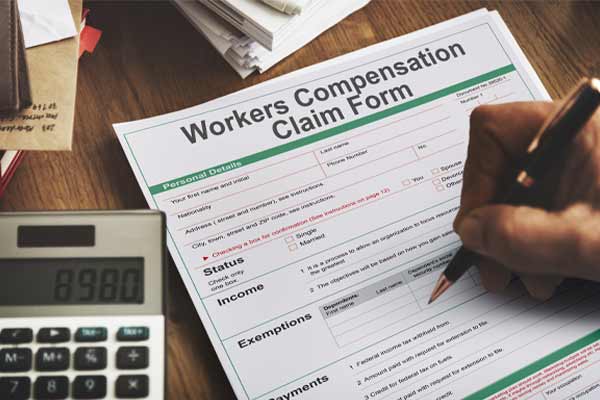Claiming workers’ comp benefits can be a complicated process for the uninitiated. When you are injured or become ill on the job, getting medical attention and being able to cover your bills is vital. That's why it pays to have an experienced Denver workers' compensation lawyer in your corner who will advocate for you so that this doesn't happen! Employers may try and make things difficult, but with someone by your side navigating these murky waters of Colorado law - taking care of everything from paperwork to negotiations - you will not have to worry about your case at all!
We have helped many clients get their maximum financial compensation and recovered millions of dollars for injured workers in all types of jobs. If you or someone close to you is struggling with work injuries, we want to help! Contact our firm today by calling 720-770-5454 for a free case evaluation so a personal injury attorney in Denver can represent your best interests!
What Is Workers’ Compensation?
Workers’ Compensation is a type of insurance that protects employees from injuries or illnesses they suffer while on the job. This coverage allows workers to receive medical care, wage replacement, and other types of benefits if injured at work. In Denver, Colorado there are three ways that employers can provide this type of protection for their employees; through state-run programs, private insurance companies, or self-insurance. Regardless of which method an employer chooses to provide Workers' Compensation benefits, Denver WCB provides enforcement oversight over all forms so the process remains fair for everyone involved in Denver's workforce!
Your injury will dictate how much you receive. Unfortunately, many employers and insurance companies use tactics in their assessments to reduce the amount they have to pay. This means that a lot of people end up with less than what they deserve- but don't worry! Hiring an experienced workers' compensation attorney can help maximize your benefits after being injured at work or on the job site.
Workers’ Compensation Law in Colorado
Colorado established workers’ compensation laws in 1915 with the Colorado Workers Compensation Act. The DOWC oversees the system, making sure to enforce these new rules for businesses that have one or more employees under them. Very few exceptions exist as most of Colorado requires all business owners to carry a workers' compensation policy that will protect their employees if they are injured on-site during work hours. Not only does it help keep companies up and running but also keeps them liable for any legal disputes filed by an injured worker. Sole proprietors, corporate officers, and limited liability company members are exempt from the requirement to purchase workers' compensation. however, they may choose to get it if desired.

Work-Related Injury Statistics in Colorado
In 2019, the Bureau of Labor Statistics reported that the rate of nonfatal workplace injuries went unchanged from 2017 to 2018, at 2.8 recordable cases per 100 full-time workers. The amount of injury resulting in days away from work was 0.9 per 100 workers, also unchanged during this period.
The number of fatal workplace injuries was up 2%, while the rate stayed at 3.5 per 100,000 full-time employees. 40% of all work fatalities were due to transport-related incidents.
There was an 11% drop in deaths due to falls, but a 13% increase for those killed by contact with objects or equipment like machinery and tools.
Construction site fatalities increased nearly 4%, and the BLS found that roofers, as well as loggers and related fishing workers, had fatality rates “more than 10 times the all-worker rate of 3.5 fatalities per 100,000 FTE workers.”
The construction industry had a small decline in injuries. BLS found that while there has been a drop in rates from 3.1 last year to 3.0 this past year, this is still far higher than what would be considered average for any other type of industry
What Kinds of Workers' Compensation Benefits Can I Receive?
You can receive both medical care as well as lost wages for those who missed work following their accident in a Denver workplace. Compensation comes in two forms:
- Temporary disability benefits last until the worker recovers fully or returns to employment
- Permanent partial disability benefits are given when there is an impairment resulting from the injury that does not completely heal with treatment alone but requires ongoing treatments such as physical therapy, chiropractic care, medications, etc., plus adjustments in future earnings based on what type of degree they had and what type of work they did.
Temporary disability benefits are paid while the Denver worker is unable to perform their usual job duties, such as being at home or sitting in front of a computer for long periods of time but can go back to work on modified duty if there is one available that will allow them to earn less than 50% of their average monthly wages. The injury also has to be verified by medical records from a medical provider before an accurate assessment can take place. It makes sense for workers who are seeking compensation for injuries sustained in the workplace to seek out treatment before investigating whether they have grounds for legal action.
There is no maximum limit on how much Denver workers' compensation benefits will pay. These benefits are paid for as long as the worker is not able to return to work in their original job and also can't find other employment of equal or greater wage within a reasonable amount of time - usually 12 months.
Who Pays For My Workers’ Compensation Benefits?
Workers' compensation is settled by your employer, the state government, an insurance company, or a third-party administrator. If you are injured at work and need to receive funds for medical bills from another source other than through these sources then contact us!
State-Run Workers Compensation Programs
The state creates a safety net for employers. Low-risk companies with the help of these programs can maintain quality insurance coverage without putting themselves at risk financially.
Employers that do not carry occupational and workers' compensation policies are in legal jeopardy, which is why it's important to seek protection as soon as possible from this program!
Private Insurance Workers Compensation Programs
Private companies are often used by businesses to take care of their employees’ Workers' Compensation. If your employer uses a private company, then you will need to make a claim with that specific organization in order for them to pay the claims costs and provide workers' compensation benefits.
Self-Insurance
Larger, more established, corporations may self-insure themselves which allows them to avoid paying premiums. These companies are overseen by the state so that they make all necessary payouts for Workers' compensation. Self-insured businesses use a third-party administrator who takes care of paperwork and processing as well as management in order to ensure employees receive their payments on time each month.
Do I Have a Workers’ Compensation Case?
Denver workers comp lawyer should be consulted if any of the following are experienced:
- A work-related illness or injury that resulted in more than three days away from work, severe injury, disability, or fatality.
- Injuries caused by an automobile accident (unless specifically excluded) on company time and location in which injured employees need to miss at least two consecutive shifts within one week due to their medical condition. This includes the use of company vehicles for errands. Contact an automobile accident lawyer today.
- Any other event where employers may face liability because someone is hurt while performing duties as instructed by them under state law.
Employees must also provide written notice of this incident to the employer so they can try and prevent future accidents during working hours.

The Colorado Division of Workers’ Compensation says that benefits may be reduced if an injury is caused by the worker's use of drugs or alcohol, willful failure to wear a safety device, and refusal to obey posted rules.
How Long Do I Have to File a Workers' Comp Claim?
Colorado has a two-year statute of limitations on workers’ compensation claims. Judges may extend the time limit to three years in certain cases, but this is rare and should be discussed with an attorney before making any decisions about your claim. Continue reading for more information!
If you are injured due to a job accident in Colorado then it is important that you file within 2 years. If you fail to do so you risk losing your right to seek financial support from workers comp insurance companies who typically offer lifetime benefits when someone gets hurt on the job.
If you file your claim within the statute of limitations and are unhappy with the insurance company’s decision you can take your claim to a Colorado workers' compensation judge for an in-depth hearing. If they do not make the right judgment call on your behalf you may continue by appealing their decision and pursuing the maximum benefits that you need and deserve.
Review Your Case Today With Our Denver Workers Compensation Lawyers
There are many potential pitfalls for workers who have been injured at work. They may not know what steps to take, or they feel like the system might be stacked against them. Workers’ compensation claims can be a complicated process and you shouldn't try to navigate it on your own. At DCAL, we are dedicated to protecting every worker's compensation claim from the very beginning of their case.
If your injury or illness has already been denied by a workers' comp insurance company, contact us for help with appealing it and pursuing financial relief. Our attorneys will be with you through every step of the compensation process. Call our personal injury law firm in Denver today at 720-770-5454 for your free consultation so we can get started defending your legal rights as soon as possible.

